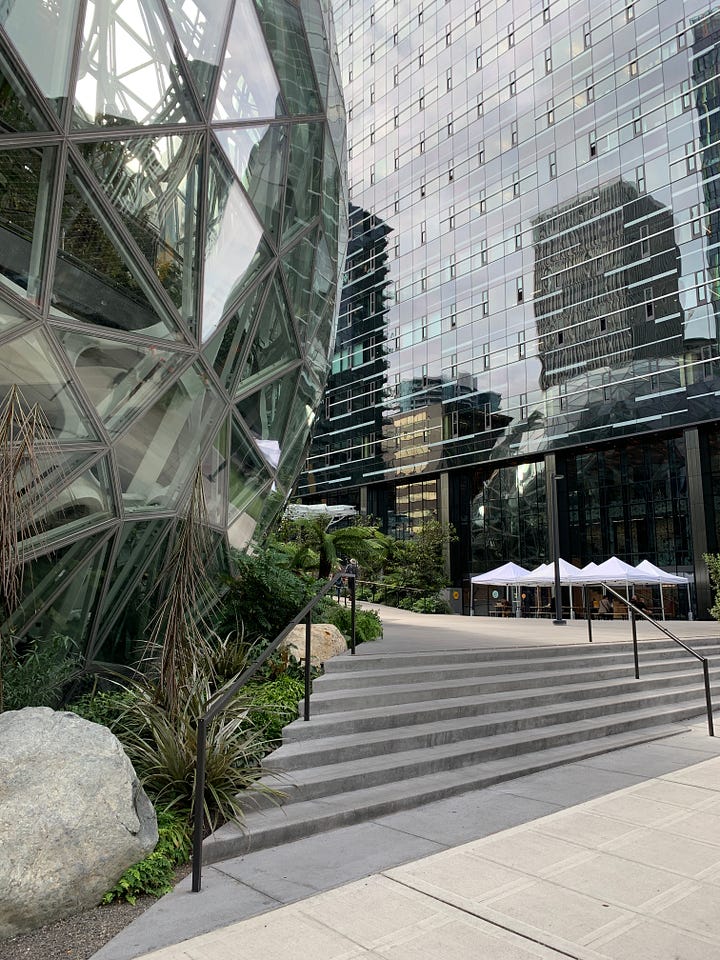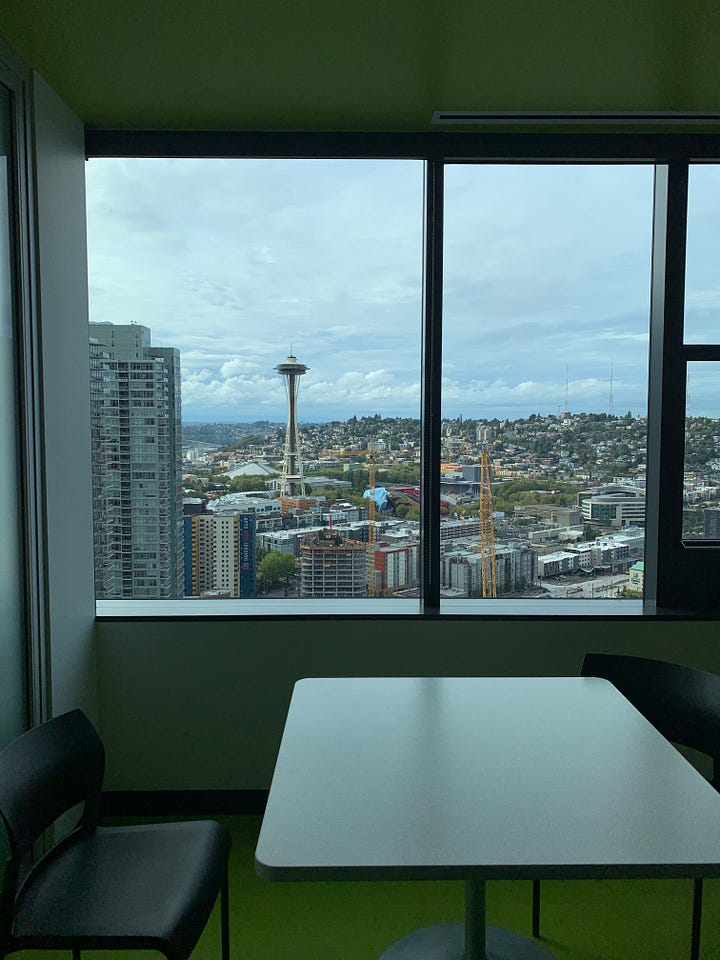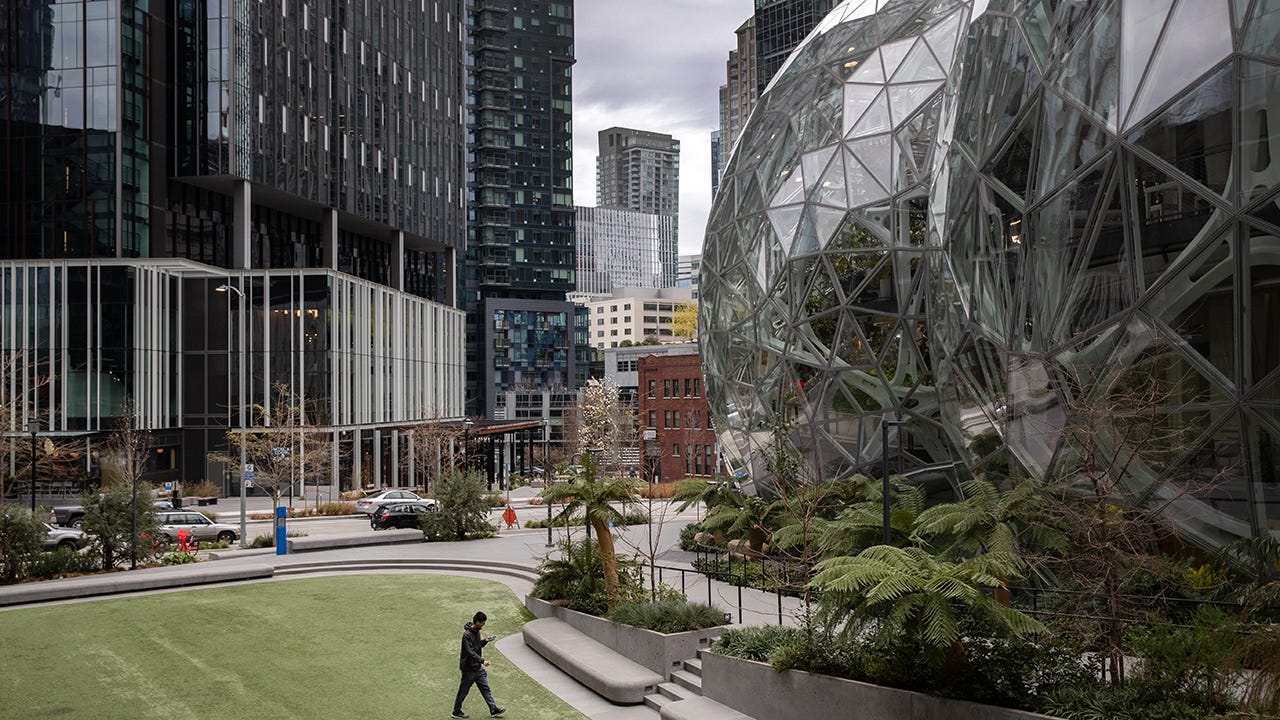3 Things I did interviewing at Amazon
Hey there! I’m Raika, a Senior UX and Conversation Designer at Amazon. If you’re new here, welcome! You can subscribe to my Secrets to Great UX Design newsletter for weekly insights. I share actionable ways to create great experiences, grow your career and more… for designers and non-designers.
Four years ago I flew out to the Seattle headquarters for a full day of in-person interviews. It was quite the experience.
Reflecting back on my interview process (and what I’ve seen other interviewees do well), I wanted to share 3 things that I believe helped me get an offer.
Before I dive in, I want to note that I had a really great recruiter. He gave me helpful feedback as I progressed through the interview loop which no doubt helped me get an offer for which I’m very grateful. And a former colleague gave me an honest take on what design looked like at Amazon and the culture for design.
Interviewing is an art.
Walking into an interview is full of uncertainties. You don’t know what questions you will be asked. You don’t know who you are competing against. You don’t know how the decision will be made.
Man did I prepare. I studied the Leadership Principles, used the products, reviewed my career stories, practiced my presentation and more. But these 3 things made all the difference:
1. Told and then showed them what kind of designer I am
“Show don’t tell” they say.
But when it comes to interviewing, you need to do both.
"If you don't know what you want to achieve in your presentation your audience never will." — Harvey Diamond
The purpose of a portfolio review is to show the work you’ve done and share about your process. But you have to tell'em what you are going to tell'em, tell it to them, and then tell'em what you told them.
In my portfolio presentation, I had a slide at the beginning where I explicitly told them what kind of designer I am (strategic, curious and empirical). This set the stage nicely for the work samples that I then walked them through.
I was strategic about the work samples I selected, making sure they were relevant to Amazon and the role I was interviewing for. A few of the things I made sure to include in each case study were:
The ask
The challenges we faced
My role and specific contribution
The team makeup
Key learnings
What I would do differently
Metrics and outcomes
2. Respectfully defended my work
Have conviction… A bit of context if you aren’t familiar with bar raisers. The bar raiser’s role is to help hire the right candidates by evaluating them against Amazon’s leadership principles and how they embody Amazon’s vision, culture, and spirit. Amazon Bar Raisers are specially trained and skilled interviewers unique to Amazon’s interview process.
It wasn’t too hard to figure out who my bar raiser was. He was critical of my work and didn’t hold back. I didn’t get offended tho. Instead, I was able to calmly communicate when I disagreed and when I agreed. As a result, it turned into a great conversation about innovation and voice.
Being able to handle pushback is important. And some interviewers will test you on it. So be ready and embrace it!
3. I was myself
Probably the most important thing I did was really be myself. I absolutely prepped for the interview but I didn’t try to contort myself into what I thought the hiring manager and team wanted in their next hire.
While my ego wanted an offer, I knew it was more important to naturally be a good fit. I couldn’t be out of alignment with myself just to get a job. I’d be miserable in a job like that. So I shared about myself, showed my sense of humor and tried to have fun with the interview process.
When the nerves came, I visualized myself in a conference room presenting to a group rocking the presentation. I felt natural and comfortable. It couldn’t have gone better. Then! I visualized myself in that same conference room but I was visibly nervous and fumbling through it. In both scenarios, I pictured God sitting at the table with a beaming smile. Proud of me. My performance didn’t change my value or worth. What a powerful sense of relief that was.
BONUS: Had a thoughtful answer to why I wanted to work there
One last thing I’ll add is I had a strong answer to why I wanted to work not just at Amazon (company) but on Alexa (product) and in AVS (organization/team).
I know I love to ask this question when interviewing people. It tells me quickly if they’re just looking for a job.
I shared why Amazon fits into my specific career path. How and why I was excited for the opportunity to contribute and how I wanted to learn while working at Amazon.
Interviewing is a skill best developed by practice and honed by experience.
So, if you have an interview coming up, remember to show and tell them what you bring to the table, be open to feedback but respectfully defend your work and be yourself.
Best of luck!
(As always, would love to hear your thoughts and any advice for interviewees in the comments.)
Favorite Quote and Photos from the Archives
"The most important thing to remember in a job interview is to be yourself. People can spot a fake from a mile away." — Sheryl Sandberg


Support the newsletter
If you enjoy my content, here’s how you can help support me:
Like or comment on this post 💛
Reply with a question or topic you’d like covered
Forward it to a friend and recommend that they subscribe
Share it with your network
That’s it for today. Thanks for reading!
Until next week,
raika



Excellent write-up Raika! Loved your conference room visualization and the grounding identity of knowing how God sees you whether you are rocking it or bombing it. Thanks for taking the time to write this up!
Thanks for sharing your experience. I love your second point about defending your work. It must have been so hard. I'd love to know what was the most difficult question you were asked? Why? And how did you reply to it?